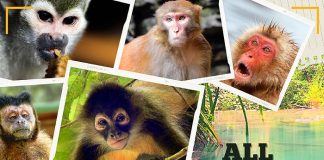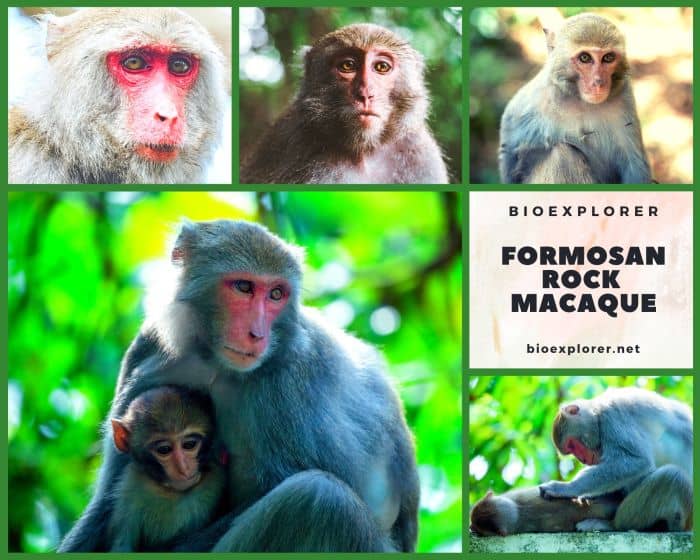
| Animalia | Primates | Cercopithecidae | Macaca | Macaca cyclopis |
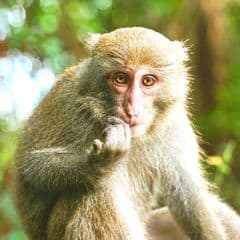

- Common Name: Formosan Rock Macaque
- Taxonomy Classification Year: 1863
- Monkey Size: 36 to 45 cm (14.17 to 17.72 in)
- Skin Color(s): Dark gray to brown
- Habitat: Forest, savanna or grassland
- Diet: Omnivorous
- Native Countries: Taiwan
Formosan Rock Macaque Distribution
Formosan Rock Macaque Characteristics
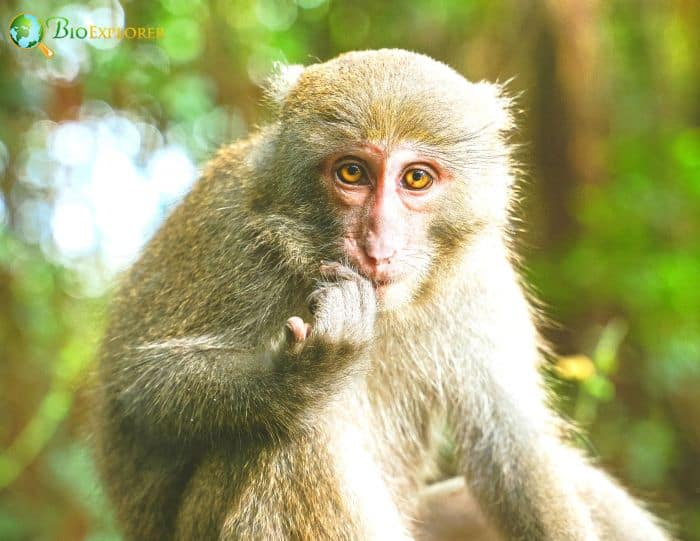
The Formosan rock macaque[1] also called the Taiwanese macaque, or Formosan rock monkey, is a macaque native to the island of Taiwan.
- They have brown fur in the summer and gray fur in the winter. In addition, they have gray or white fur covering their chests.
- Their faces are bare and pink with large eyes and long, flat noses. Their jaw is built with 4 large canines and several powerful molars for a varied diet.
- Formosan rock macaques are among the 45 species of monkeys in the Cercopithecinae subfamily. This group of macaques, vervets, and baboons is notable for their cheek pouches.
- These monkeys can quickly grab large amounts of food, store it in their cheeks, and retreat to a safe place to eat without worrying about thieves or predators.
What Do Formosan Rock Macaques Eat?
The Formosan Rock Macaque nourishes on Leptosporangiate Ferns (Polypodiopsida), Koa Haole (Leucaena leucocephala), Twinleaf Nightshade (Solanumum diphyllum), Butterfly Tree (Bauhinia purpurea), Parasol Leaf Tree (Macaranga tanarius) and more[¶].
Formosan Rock Macaque Facts
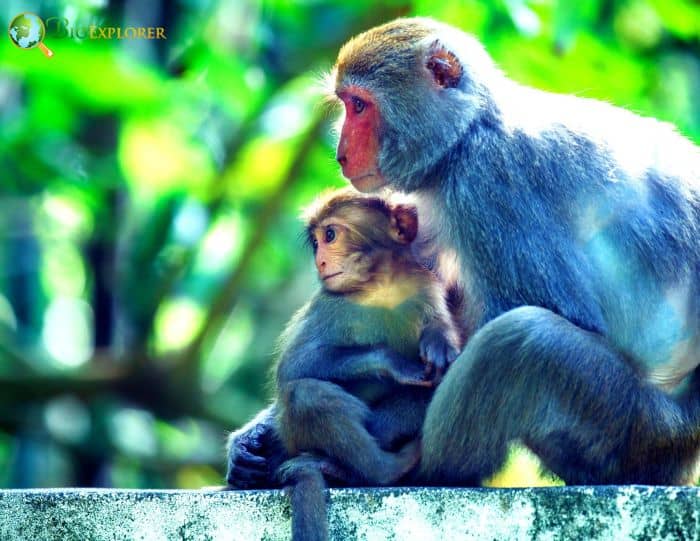
- Aside from humans, Formosan rock macaques are the only native primates living in Taiwan.
- Formosan rock macaques introduced to Japan are known to have interbred with local Japanese macaques (better known as snow monkeys), producing hybrids of the two species.
- Ideally, these species would live in groups of up to 100 individuals living in multiple male and multiple female systems with an average of 25 females and 20 males.
- When multiple males are in a group, one male attempts to establish dominance over all challengers.
- While foraging, the group keeps in touch by shouting “gu“; the others answer with a so-called “kyaw-kyaw“.
Suggested Reading: Monkeys Around The World
Cite This Page
APA7MLA8Chicago
BioExplorer.net. (2025, April 14). Formosan Rock Macaque. Bio Explorer. https://www.bioexplorer.net/animals/mammals/monkeys/formosan-rock-macaque/.
BioExplorer.net. "Formosan Rock Macaque" Bio Explorer, 14 April 2025, https://www.bioexplorer.net/animals/mammals/monkeys/formosan-rock-macaque/.
BioExplorer.net. "Formosan Rock Macaque" Bio Explorer, April 14 2025. https://www.bioexplorer.net/animals/mammals/monkeys/formosan-rock-macaque/.










